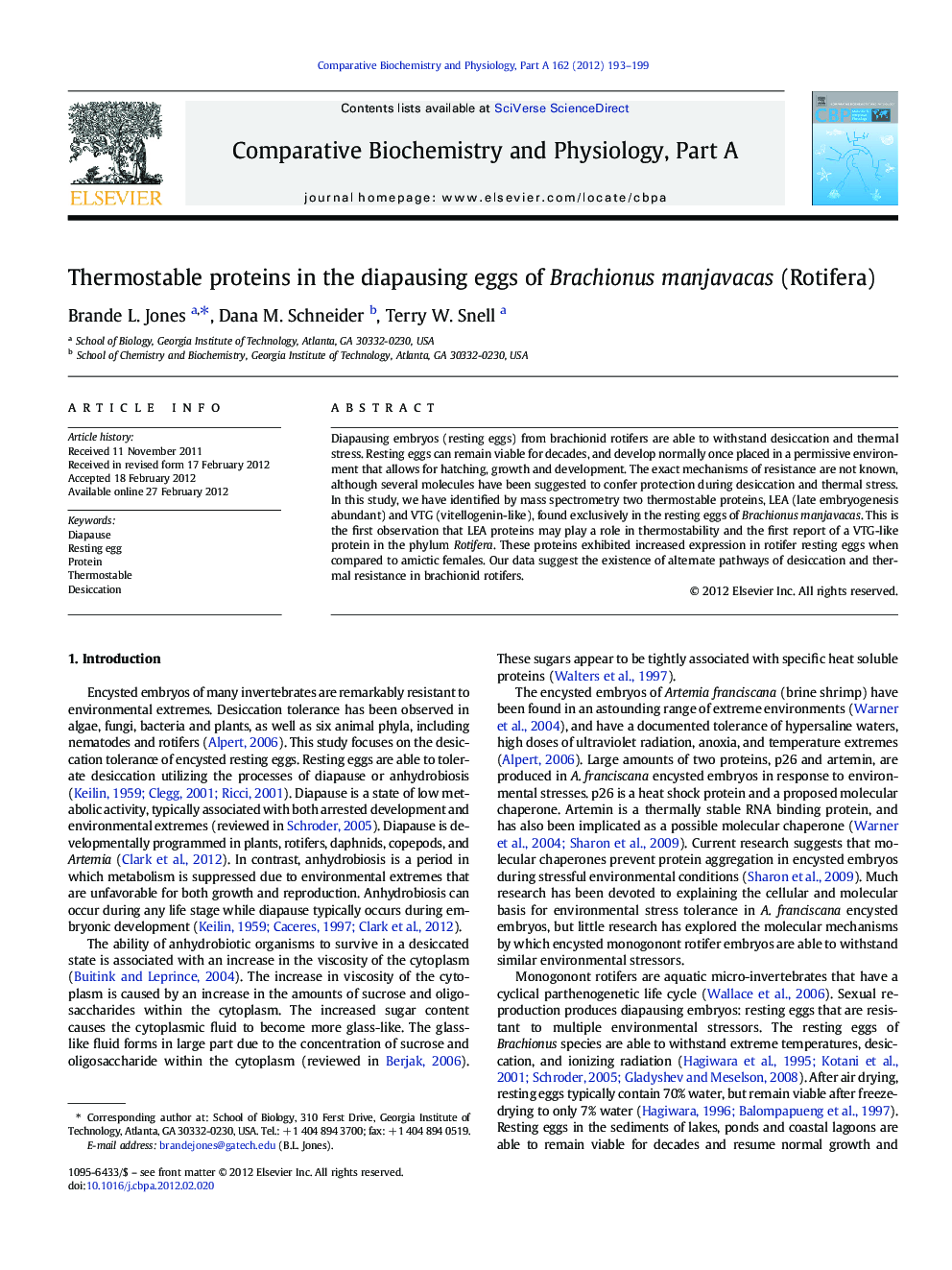| Article ID | Journal | Published Year | Pages | File Type |
|---|---|---|---|---|
| 10818913 | Comparative Biochemistry and Physiology Part A: Molecular & Integrative Physiology | 2012 | 7 Pages |
Abstract
Diapausing embryos (resting eggs) from brachionid rotifers are able to withstand desiccation and thermal stress. Resting eggs can remain viable for decades, and develop normally once placed in a permissive environment that allows for hatching, growth and development. The exact mechanisms of resistance are not known, although several molecules have been suggested to confer protection during desiccation and thermal stress. In this study, we have identified by mass spectrometry two thermostable proteins, LEA (late embryogenesis abundant) and VTG (vitellogenin-like), found exclusively in the resting eggs of Brachionus manjavacas. This is the first observation that LEA proteins may play a role in thermostability and the first report of a VTG-like protein in the phylum Rotifera. These proteins exhibited increased expression in rotifer resting eggs when compared to amictic females. Our data suggest the existence of alternate pathways of desiccation and thermal resistance in brachionid rotifers.
Related Topics
Life Sciences
Biochemistry, Genetics and Molecular Biology
Biochemistry
Authors
Brande L. Jones, Dana M. Schneider, Terry W. Snell,
